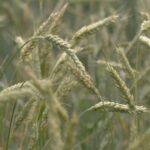In the shadow of British Columbia’s towering mountains, an extraordinary transformation is underway in Revelstoke. What was once a neglected gravel lot behind the United Church has blossomed into a vibrant community space that’s redefining local food security and social connection. The Revelstoke Community Food Hub Initiative has emerged as a powerful example of how grassroots action can reshape urban spaces to address pressing community needs.
“We’re witnessing something remarkable here—a complete reimagining of what public space can be,” explains Sarah Johnson, one of the project’s lead coordinators. “This isn’t just about growing food; it’s about cultivating community resilience.”
The initiative began modestly two years ago when a coalition of local organizations identified food security as a growing concern for Revelstoke residents. What started as informal conversations quickly crystallized into an ambitious vision: creating a centralized location where community members could grow, prepare, share, and learn about sustainable food practices.
The transformation has been nothing short of remarkable. The once-barren lot now features raised garden beds bursting with organic produce, a community kitchen pavilion constructed from locally-sourced timber, and gathering spaces designed to accommodate workshops and community meals. Most impressive is how the design seamlessly integrates with Revelstoke’s natural surroundings, incorporating native plants and sustainable water management systems.
“We’ve created something that belongs to everyone,” notes Michael Chen, the project’s landscape architect. “The design intentionally breaks down barriers between growing, preparing, and sharing food. Everything flows together naturally, just as it should in a healthy food system.”
The initiative has struck a chord with Canada’s growing movement toward food sovereignty and community-based solutions to economic challenges. With grocery prices continuing to climb nationwide, projects like Revelstoke’s Food Hub demonstrate how communities can create practical alternatives to conventional food systems.
Local resident Eleanor Mackenzie, 72, has become a regular volunteer at the hub. “I’ve lived in Revelstoke my entire life, and I’ve never seen anything bring people together quite like this,” she says, gesturing toward a diverse group of community members harvesting vegetables for the week’s community meal. “Young people are learning traditional food preservation techniques from seniors. Newcomers to town are finding connection and purpose. The barriers just seem to melt away here.”
The project hasn’t been without challenges. Initial funding hurdles required creative community fundraising efforts, and organizers had to navigate complex municipal regulations. However, these obstacles ultimately strengthened community buy-in and demonstrated the depth of local commitment to the initiative.
Beyond its physical transformation, the Food Hub has become an important political statement about community priorities. In an era when public spaces increasingly face privatization pressures, Revelstoke has created a compelling model for how urban areas can be reclaimed for community benefit.
“What we’re seeing here represents a profound shift in how we think about community development,” explains Dr. Lisa Monteiro, an urban planning expert from the University of British Columbia who has been studying the initiative. “Rather than treating food as simply a commodity to be purchased, this project reconnects people with the entire food system—from soil to table—while simultaneously creating meaningful social connections.”
The initiative has already inspired similar projects in neighboring communities, with delegations from across British Columbia visiting Revelstoke to learn from their model. As climate change and economic uncertainty continue to threaten conventional food systems, community-based approaches like Revelstoke’s offer promising alternatives.
As summer sunlight filters through the newly planted fruit trees, casting dappled shadows across the community kitchen, one can’t help but wonder: Could this unassuming transformation in a small mountain town represent the future of how communities address food security in an increasingly uncertain world? If Revelstoke’s example is any indication, the seeds of resilience may indeed be taking root.

























